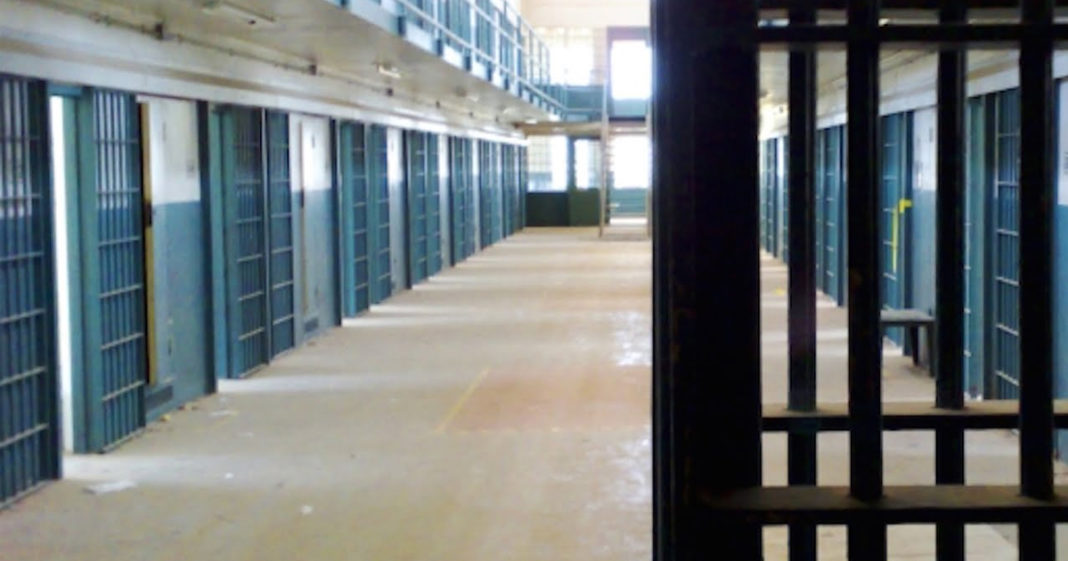Big Pharma isn’t the only one salivating at the golden prospects of no regulation or control of their blood-sucking, predatory profiteering and price gouging now that the party of Greed Over People will be in control of all three branches of government for the foreseeable future.
The obscenity known as the Private Prison Industry is also celebrating, as Mr. Arch-Capitalist himself, the Orange Monstrosity, will be putting the agenda of privatization of our public institutions – including the corrections system – on steroids.
Only last August, the U.S. Department of Justice announced that it would be phasing out private prisons. However, analysts are saying that the Trump Administration will reverse that policy. After all, his agenda of wholesale deportations probably won’t work out quite as well as Trump would like – and he’ll have to put all those “illegals” somewhere.
Chances are that if or when Drumpf puts his anti-immigrant agenda in action, Immigration and Customs Enforcement (ICE) detention facilities are likely to be overwhelmed. The problem Herr Drumpf faces is legal issues that may derail his mass deportation program, meaning those suspected of being in the country illegally will have to be housed somewhere while awaiting a hearing or a ride out of the country.
The solution? private, for-profit prisons!
We should not have to spell out what that means – particularly when there are corrupt judges and lawmakers with financial interests in companies like Corrections Corporation of America, Inc. (CCA) and the GEO Group. In fact, both companies saw their stock values soar in the wake of last night’s electoral fiasco.
Private prison facilities aren’t exactly new. They were even used in England in the wake of the American Revolution. After His Majesty’s government was no longer able to ship convicts to the colonies, detention of convicts was contracted out to private ship owners, who left their vessels moored in various ports. San Francisco Bay’s infamous San Quentin Prison started out as a private prison, built by inmates of a prison ship in the early 1850s. During the Reconstruction Era that followed the American Civil War, Southern plantation owners who had been deprived of their slaves began contracting for the services of convicts. That system continued well into the 1900s.
Things changed dramatically during the Reagan Administration and his so-called “War on Drugs.” As a result of that ill-considered and destructive policy, the prison population began increasing rapidly. After being awarded a contract to operate a jail in Hamilton County, Tennessee, the CCA offered to take over the Volunteer State’s entire correctional system for the bargain price of $200 million. Wisely, public employee unions and the state government opposed the offer. Nonetheless, the idea caught on in other regions of the country – and a new, predatory industry was born.
By 2011, the private prison industry had grown into a $5 billion a year industry. This has not been lost on Wall Street, which has invested heavily in private prisons. In only 13 years, the price for CCA stock went from $1 to over $34 per share. Journalist Chris Hedges calls it a “lucrative [and] hugely profitable” industry.
Despite its profitability, there are several legitimate concerns about the private prison industry – and corruption among lawmakers and judges who stand to gain from an exploding prison population isn’t the least of it. Last summer, an article appearing on the Canadian website Global Research reported that private prisons represent “a new form of inhumane exploitation,” in which inmates – primarily African-American and Hispanic – are forced to work for other private companies for as little as .25 cents an hour.
Today, there are around 2 million inmates being detained in private prisons in a country that has more of its people behind bars than any other nation on earth (including repressive regimes like China and Russia). Shareholders with a financial stake in this new form of slavery lobby legislators, pushing for longer sentences and more laws that will insure an abundant supply of virtually free labor.
And that prison population is growing, despite overall reductions in the crime rate. Non-violent drug offenders are given draconian sentences for possession of small amounts of controlled substances (primarily crack and marijuana – the drugs of choice for those of low socio-economic status).
Well, America…congratulations. You not only voted away your right to health care, you’ve also voted to repeal the 13 amendment. Aren’t you proud of yourself?




